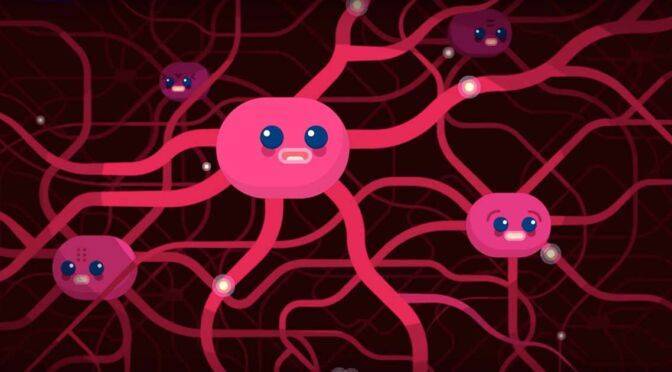Recent studies have revealed a strong correlation between brain characteristics and an individual’s political views.
In fact, one study showed researchers could predict with 72% accuracy whether people were conservative or liberal based on brain structure alone.
And when they analyze brain activity, they can even tell if you’re a Demmy or a Repubsy with 83% accuracy.
Characteristics of The Liberal Brain
1) Greater Activity When Processing New, Surprising, or Contradictory Information
Liberals tend to have a larger anterior cingulate gyrus.
This area processes new information and the impact of it on their choices.
2) Stronger Connectivity Linked to Empathy and Social Skills
Liberals tend to exhibit greater activity in the left insula – which is associated with social and self-awareness.
Resulting Personality Traits:
- Higher openness
- Less reactive to change
- Values empathy more highly
Characteristics of The Conservative Brain
1) Higher Sensitivity to Threats
Conservatives tend to have a larger right amygdala, and it fires more rapidly than for liberals.
This is a deep brain structure that works with fear-based emotion and triggers the flight or fight response. A study found that when conservatives hear a shocking noise, they exhibit more instinctual, fear-based reactions.
2) More Sensitive to Disgust
Complementary to the larger right amygdala, conservatives have more grey matter in the left insula – which is associated with feelings of disgust.
One study showed a striking correlation between one’s predisposition for disgust and a conservative ideology.
Resulting Personality Traits:
- Greater desire for stability
- Values loyalty
- Adverse to change

All this said, having a liberal or conservative orientation is not always clear cut.
There is a full spectrum of ideologies – and some are tidier than others.
But, the thing is, by understanding how our brains work, we can get a better idea of how we come to hold certain political beliefs.
Everything we know goes through our brain first, and every brain filters things differently.
And because every brain is paying attention to and ignoring different things, in a very real sense, we all live in different realities.
Instagram will load in the frontend.
The Morality of Liberals and Conservatives
Different brain structures contribute to different moral priorities.
Moral Foundation Theory identifies six cross-cultural pillars of human moral reasoning:
- Care:
cherishing and protecting others; opposite of harm. - Fairness or proportionality:
rendering justice according to shared rules; opposite of cheating. - Liberty:
the loathing of tyranny; opposite of oppression. - Loyalty or ingroup:
standing with your group, family, nation; opposite of betrayal. - Authority or respect:
obeying tradition and legitimate authority; opposite of subversion. - Sanctity or purity:
abhorrence for disgusting things, foods, actions; opposite of degradation.
After analyzing tens of thousands of survey responses, Jonathan Haidt found that conservatives tend to more equally value the pillars than liberals. Liberals do not tend to value loyalty, authority, and sanctity as much as conservatives do.
You can contribute to this ongoing study at YourMorals.org
Liberals are less likely to value authority and loyalty because they are often barriers to care, liberty and fairness.
Conservatives are more likely to be in touch with the fragility of order and are more motivated to preserve it. Both of these orientations evolved because they have each been key to our survival.
Persuading Minds
Strategies for Persuading a Liberal
- Provide novel new information that is science-based and/or factual
- Do not appeal to doctrine or tradition
- Try to speak to their point of view at an empathetic level
Strategies for Persuading a Conservative
- Speak to values such as loyalty, stability and order
- Speak within the context of any religious belief they may hold
- Soothe any anxiety about change at an empathetic level
“A lot of the problems we have to solve are problems that requires us to change other people. And if you want to change other people... first understand who we are. Understand our moral psychology. Understand that we all think we’re right… Just try to see it as a struggle playing out in which everybody does think they’re right. Everybody at least has some reason. Even if you disagree with them, everybody has some reasons for what they’re doing. Step out. If you do that, that’s the essential move to cultivate more humility - to get yourself out of his self-righteousness which is the normal human condition.”
- Jonathan Haidt
2-3X Your
Learning Speed

9 Insights From Brain Science to Make You Unforgettable
Most people want to be remembered for something. We want to be the type of people that leave an impression

Exploring the Nature of What We Are
This thought-provoking video essay by Kurzgesagt – In a Nutshell insightfully deconstructs the nature of what we are. https://www.youtube.com/watch?v=JQVmkDUkZT4 “Are you your body?

5 Science-backed Steps for Reaching States of Enlightenment
There are five broad steps to reaching enlightenment. The above may be a bold statement, but there may be no

Why Too Much Stress is Enemy #1 to Your Brain Performance
✨ Just so you know… There is now a much cooler version of this post, IMHO. This old one mostly


I love this article!
However, I am one of those that cannot read next to moving images. I had to copy and paste it into a document to read it. Please provide a way to turn the moving images off.
Hi Annaks!
Thank you so much for the kind and constructive feedback! Moving forward, we will tone down the amount of moving images. Very warmly~ Josiah